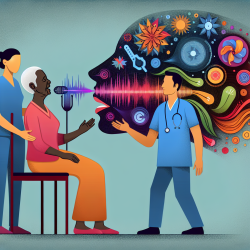Introduction
Depression remains a significant mental health challenge, especially among LGBTQ (Lesbian, Gay, Bisexual, Transgender, or Queer) youth. The prevalence of depression in this group is alarmingly high due to societal stigma and unique stressors. A recent study published in the Journal of Clinical Medicine explores the feasibility of an adapted Cognitive Behavioral Therapy (CBT) intervention, "Being Out With Strength" (BOWS), aimed at reducing depression among LGBTQ young people.
Study Overview
The study utilized a mixed-methods feasibility design to assess the demand, acceptability, and implementation of the BOWS intervention. Data were collected from 79 LGBTQ young adults and nine mental health professionals. The results revealed a significant demand for the intervention, with almost half of the young adults exhibiting clinically significant depressive symptoms. Moreover, two-thirds expressed interest in participating in BOWS.
Key Findings
- Demand: Both young adults and providers indicated a strong need for interventions like BOWS, specifically designed for LGBTQ youth.
- Acceptability: The intervention was deemed acceptable for late adolescents and young adults with mild to moderate depression. The group format was highlighted as beneficial for mutual support and reducing feelings of isolation.
- Implementation: Recommendations included optimal settings for BOWS sessions, such as college campuses and community centers, and ideal group sizes of 6-8 participants.
Implications for Practitioners
Practitioners working with LGBTQ youth can benefit from integrating findings from this study into their practice. Implementing group-based CBT interventions like BOWS can provide a supportive environment for youth to address depression and internalized oppression. Practitioners should consider the unique needs of LGBTQ youth, such as creating safe spaces and employing culturally humble approaches.
Encouraging Further Research
While the feasibility study provides promising insights, further research is necessary to evaluate the efficacy of BOWS in diverse settings. Practitioners are encouraged to participate in or conduct additional studies to refine and adapt interventions for broader implementation.
To read the original research paper, please follow this link: Findings from a Feasibility Study of an Adapted Cognitive Behavioral Therapy Group Intervention to Reduce Depression among LGBTQ (Lesbian, Gay, Bisexual, Transgender, or Queer) Young People.










